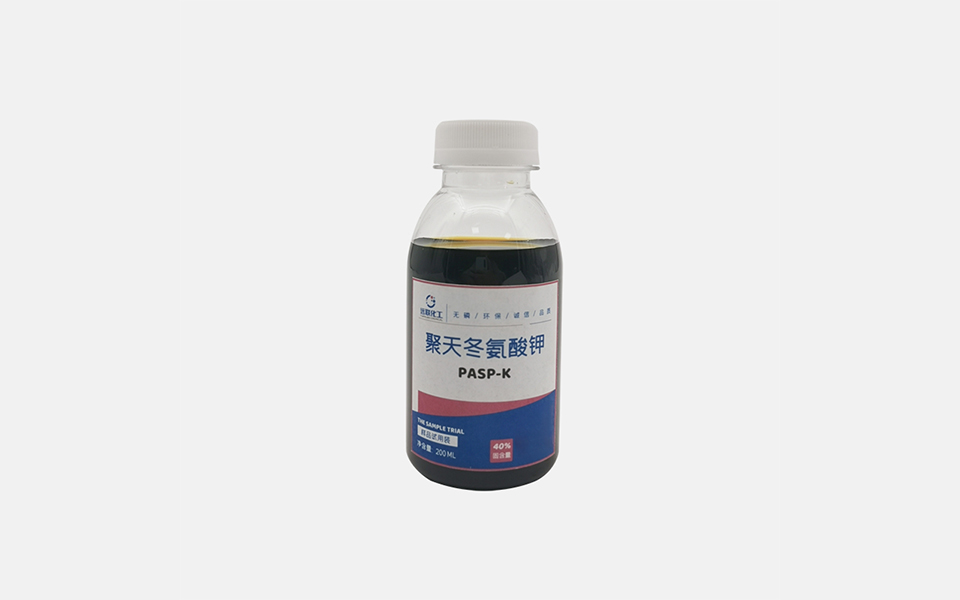
Potassium Polyaspartate: A Revolutionary Solution for Wine Stabilization
In the art and science of winemaking, potassium polyaspartate is quietly transforming the traditional approach to tartaric stability, with Yuanlian Chemical emerging as a trusted supplier for wineries across Europe.
The stabilization of tartrates has always presented challenges in winemaking. While the appearance of glittering tartrate crystals in bottled wine doesn't affect safety, it significantly impacts visual appeal and consumer experience. Traditional cold stabilization methods consume substantial energy and incur high costs—until potassium polyaspartate (KPA) emerged, offering the industry an innovative solution. Yuanlian Chemical has been at the forefront of making this technology accessible to European winemakers.

The Challenge of Wine Stability
Wine constitutes a complex chemical system where potassium bitartrate and calcium tartrate naturally form crystalline precipitates as temperature fluctuated.
This phenomenon connects directly to storage conditions, pH levels, and ionic concentration. Traditionally, winemakers have addressed this issue through cold stabilization, ion exchange, or electrodialysis techniques.
Each method carries limitations: cold stabilization demands excessive energy, electrodialysis requires significant equipment investment, and these approaches may potentially compromise wine's sensory characteristics. The high costs and complexities of physical stabilization methods have driven demand for more efficient, economical alternatives like those developed by Yuanlian Chemical.
Properties and Mechanism of Potassium Polyaspartate
Potassium polyaspartate represents a synthetic polymer with excellent biocompatibility, its molecular structure mimicking naturally occurring aspartic acid while offering outstanding environmental credentials. Yuanlian Chemical's premium grade KPA meets the highest purity standards required by European winemakers.
In wine stabilization, KPA functions through two key mechanisms:
-
Crystal formation inhibition: KPA effectively disrupts the formation and growth of potassium bitartrate crystal nuclei, preventing their aggregation into visible crystals
-
Dispersion action: It maintains micro-crystals in suspension, preventing sedimentation and scaling
Unlike the temporary protection offered by metatartaric acid, the stability provided by potassium polyaspartate is long-lasting, ensuring wine remains brilliantly clear throughout its shelf life. Yuanlian Chemical provides technical support to help wineries optimize their stabilization protocols.
Application Benefits and Performance
Multiple studies confirm the exceptional performance of potassium polyaspartate in wine stabilization.
A 2019 study on Cabernet Sauvignon demonstrated that 150mg/L of KPA significantly reduced electrical conductivity variation while improving wine turbidity and color intensity.
Further research on Chardonnay in 2020 confirmed that 100mg/L of KPA achieved optimal stabilization results, with minimal post-treatment conductivity change (27μs/cm) and no significant impact on turbidity, tartaric acid, or potassium content. Yuanlian Chemical's products consistently deliver these results in commercial applications.
Compared to traditional stabilization methods, KPA offers multiple advantages:
-
High-efficiency stabilization: Typical usage of 100-200mg/L ensures long-term wine stability
-
Simple operation: Liquid form allows straightforward addition and rapid integration
-
Sensory neutrality: No impact on wine aroma, taste, or filtration characteristics
-
Economic and eco-friendly: Significantly reduces energy consumption, aligning with sustainable production principles
Regulatory Approval and Usage Scope
Multiple major wine regions and global markets have approved potassium polyaspartate as a wine stabilizer:
European Union: Approved since 2016 with a maximum limit of 300mg/L, with typical usage between 100-200mg/L.
United States: FDA-approved for wine use with similar application parameters.
Australia: Approved potassium polyaspartate for wine use in 2019 with a usage limit of 100mg/L.
Yuanlian Chemical ensures all their potassium polyaspartate products comply with international regulatory standards, providing documentation and certification for each market.
Comparison with Other Stabilization Agents
In practical applications, winemakers typically select stabilizers based on specific characteristics:
-
Metatartaric acid (MTA): Rapid effectiveness but hydrolyzes over time, providing only short-term protection
-
Carboxymethyl cellulose (CMC): Good effectiveness but may impact wine filterability and certain sensory attributes
-
Gum arabic (GA): Effective against potassium bitartrate but limited against calcium tartrate
-
Mannoproteins (MP): Provide some stabilization but increased concentrations may elevate wine turbidity
Potassium polyaspartate from Yuanlian Chemical demonstrates clear comprehensive advantages, ensuring long-term stability at appropriate concentrations without compromising wine's sensory characteristics.
Notably, recent research (June 2024) indicates that KPA doesn't increase calcium tartrate instability, and in some wines actually enhances its stability.
Practical Application Guidelines
When implementing potassium polyaspartate in winemaking practice, consider these factors:
Addition timing: Typically added before wine bottling, with dosage adjustable based on specific wine characteristics and target stability levels.
Typical dosage: For most situations, 100-200mg/L of KPA sufficiently ensures wine stability. For particularly unstable wines, dosage may be moderately increased while respecting the 300mg/L regulatory maximum.
Compatibility: KPA remains compatible with most winemaking processes, including pre-microfiltration addition.
Yuanlian Chemical provides comprehensive technical support to help winemakers conduct small-scale trials based on their wine's specific characteristics (variety, pH, tartaric acid content, etc.) to determine optimal dosage, ensuring ideal results while controlling costs.
As global wine markets increasingly prioritize sustainable production, potassium polyaspartate stands positioned to evolve from innovative technology to industry standard as an efficient, eco-friendly stabilization solution. It represents not merely technical progress in stabilization methods, but an evolution in winemaking philosophy—creating superior products with reduced resource consumption.
For winemakers, mastering potassium polyaspartate application means gaining a competitive advantage in fierce markets—ensuring product quality while communicating environmental responsibility, achieving true win-win outcomes. Yuanlian Chemical continues to support this transition with high-quality products and expert technical guidance tailored to the European market's specific needs.
Yuanlian Chemical specializes in the production of polyaspartic acid (PASP),tetrasodium iminodisuccinate(IDS), GLDA, MGDA etc. with stable quality and excellent quantity!





Contact us